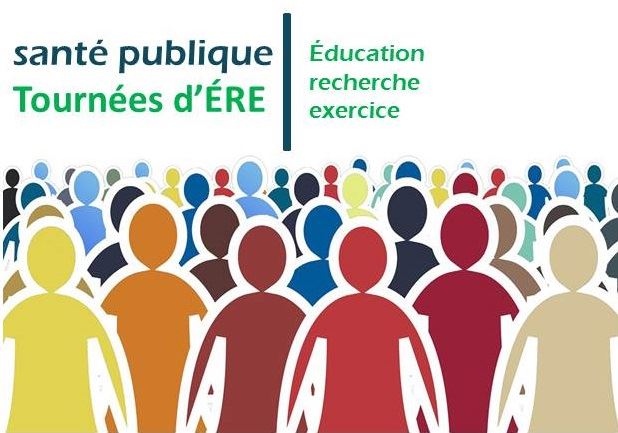|

PHPC’s Research, Education & Practice (REP) Rounds is an online, educational webinar series for PHPC members.
The PHPC Research, Education & Practice (REP) Rounds is a self-approved group learning activity (Section 1) as defined by the Maintenance of Certification Program of the Royal College of Physicians and Surgeons of Canada.
The Canadian Population Attributable Risk of Cancer (ComPARe) study
Wednesday, September 18, 2019
13:00 - 14:00 ET
(10:00 - 11:00 PT)
Presented by:
Dr. Christine Friedenreich, Scientific Director, Department of Cancer Epidemiology and Prevention Research, Alberta Health Services
Dr. Darren Brenner, Molecular Cancer epidemiologist, Departments of Oncology and Community Health Sciences, University of Calgary
Dr. Leah Smith, Senior Manage, Surveillance, Canadian Cancer Society
Elizabeth Holmes, Policy Analyst, Cancer Information team, Canadian Cancer Society
Session Description:
The ComPARe study is the most comprehensive and up-to-date study on the preventable burden of cancer in Canada. Through the ComPARe study, we know that about 4 in 10 of all cancers in Canada can be prevented through healthy living and policies that protect the health of Canadians. The ComPARe study estimates the number and percentage of cancer cases in Canada due to modifiable lifestyle, environmental and infectious agent risk factors. The study also estimates how changes to these risk factors through prevention could affect the number of cancer cases in the future.
The results of the ComPARe study are of specific interest to public health physicians as decision makers who can use this information in advising policy-makers and informing which programs and services to prioritize. The study highlights which risk factors and cancer sites are most amenable to intervention(s) to help identify which cancer prevention policies could have the greatest impact. Lastly, the results of this study can provide current information used to educate patients and inform the general public.
In this presentation, we will provide an overview of the ComPARe study, methods, key findings and resources. The presentation will include a discussion on how these findings are being used and ideas on additional ways they can inform cancer prevention policies and programs. The session will provide members of PHPC an opportunity to discuss the findings of the ComPARe study and their implications in Canada directly with the investigators.
*This webinar will be hosted in English.
Registration is restricted to PHPC Members and Residents only.
Click here to register
----------------------------

Les Tournées d’éducation, de recherche et d’exercice (ÉRE) des MSPC, une série de webinaires éducatifs à l’intention des membres des MSPC.
Les Tournées d’éducation, de recherche et d’exercice (ÉRE) des MSPC est une activité de formation collective auto-approuvée, agréée (article 1) selon la définition du programme de maintien de la certification du Collège royal des médecins et chirurgiens du Canada.
The Canadian Population Attributable Risk of Cancer (ComPARe) study
Mercredi 18 septembre 2019
13h - 14h ET
Presented by:
Dr. Christine Friedenreich, Scientific Director, Department of Cancer Epidemiology and Prevention Research, Alberta Health Services
Dr. Darren Brenner, Molecular Cancer epidemiologist, Departments of Oncology and Community Health Sciences, University of Calgary
Dr. Leah Smith, Senior Manage, Surveillance, Canadian Cancer Society
Elizabeth Holmes, Policy Analyst, Cancer Information team, Canadian Cancer Society
Session Description:
The ComPARe study is the most comprehensive and up-to-date study on the preventable burden of cancer in Canada. Through the ComPARe study, we know that about 4 in 10 of all cancers in Canada can be prevented through healthy living and policies that protect the health of Canadians. The ComPARe study estimates the number and percentage of cancer cases in Canada due to modifiable lifestyle, environmental and infectious agent risk factors. The study also estimates how changes to these risk factors through prevention could affect the number of cancer cases in the future.
The results of the ComPARe study are of specific interest to public health physicians as decision makers who can use this information in advising policy-makers and informing which programs and services to prioritize. The study highlights which risk factors and cancer sites are most amenable to intervention(s) to help identify which cancer prevention policies could have the greatest impact. Lastly, the results of this study can provide current information used to educate patients and inform the general public.
In this presentation, we will provide an overview of the ComPARe study, methods, key findings and resources. The presentation will include a discussion on how these findings are being used and ideas on additional ways they can inform cancer prevention policies and programs. The session will provide members of PHPC an opportunity to discuss the findings of the ComPARe study and their implications in Canada directly with the investigators.
*Ce webinaire sera présenté en anglais.
Inscription : Veuillez noter que cet événement est réservé aux membres et résidents de MSPC.
Cliquez ici
|
